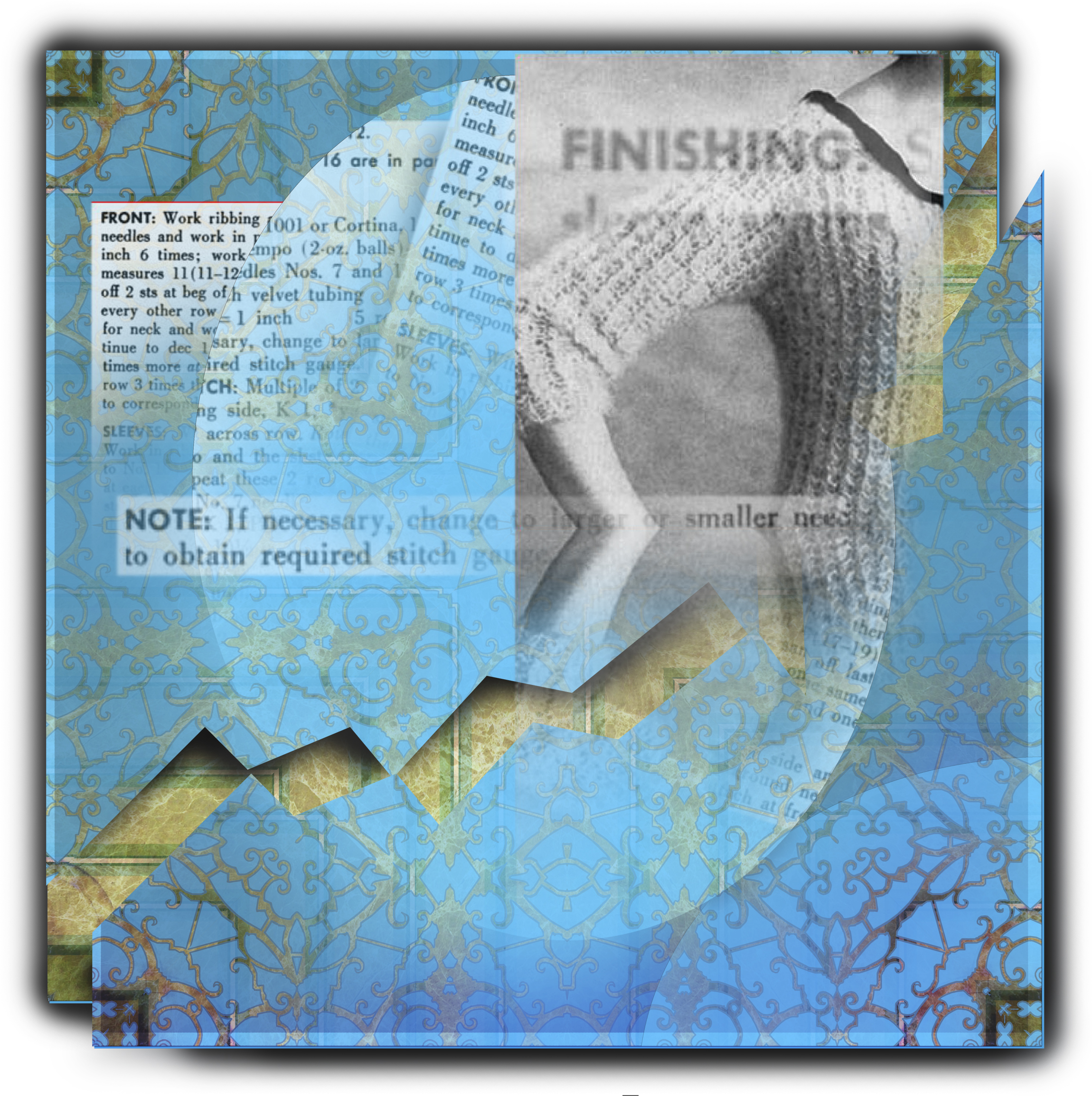
Mary Akers: In your piece “The Darning Needles,” you write, “I don’t know how to mend things.” That is a moving and potent statement. Could you speak a bit about the link between mending (as a concept) and recovery (as a concept)?
Diane Hoover Bechtler: “I don’t know how to mend things” is obviously a metaphor for not being able to mend my broken marriage. I lost my husband, my dream house and my health all in a short period of time. Had I tried to absorb all that loss at one time, I would have drowned in the tsunami created by the huge amount of loss. My husband and I put that house together and appointed it perfectly. My furniture, my art, even my workout equipment all stayed with him. After 18 years I had to build an entirely different and new life.
MA: Your piece says something important about loss–of objects and of people–and how the two can feel linked in our minds. Are there other sorts of loss do you think we might link together?
DHB: All the change and all the loss had to seep in to my life and reach the groundwater. That way I could survive. Seep is the key word. Everything had to move slower. But it didn’t because that’s the nature of life.
My survival depended on moving forward and I was paralyzed. I was overwhelmed. I learned that life will move you forward because it goes on. Seasons change; friends change; children leave home; fashion changes; politics change. So life in all of its changes pushes you forward. Whether I wanted to recover or not hardly mattered. Since there’s nowhere to hide, you find yourself moving on because life is moving on.
MA: You also write about a lack of memory as an act of self-preservation. Can you expand on this for our readers?
DHB: Not being able to remember is a powerful coping tool. It all comes back, but not in a flood. It comes back in droplets. Easier to absorb. Very few positive things were happening in my life–this caused me to cling to the things that were positive as tightly as I could. I threw myself into school. It became my lifeline.

MA: What did you think of the illustration Morgan Maurer did for your piece?
DHB: The artwork done by Morgan Mauer was particularly appropriate. The sweater was being knitted or unraveled. It was changing. It was coming or going. On the other side of whatever was happening it was going to be a different thing.
MA: And finally, what does “recovery” mean to you?
DHB: Recovery is active. I wanted to be rescued which is a passive motion.
MA: Thanks so much for talking with us today, Diane. And for our readers, here are some links to more of Diane’s fine work:

Pingback: The Darning Needles | Rkvry Quarterly Literary Journal